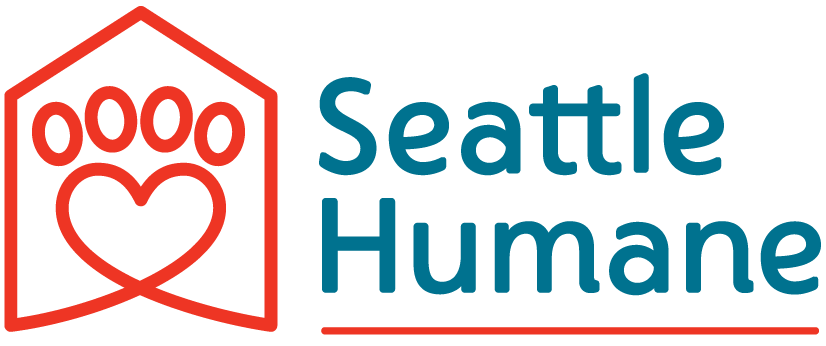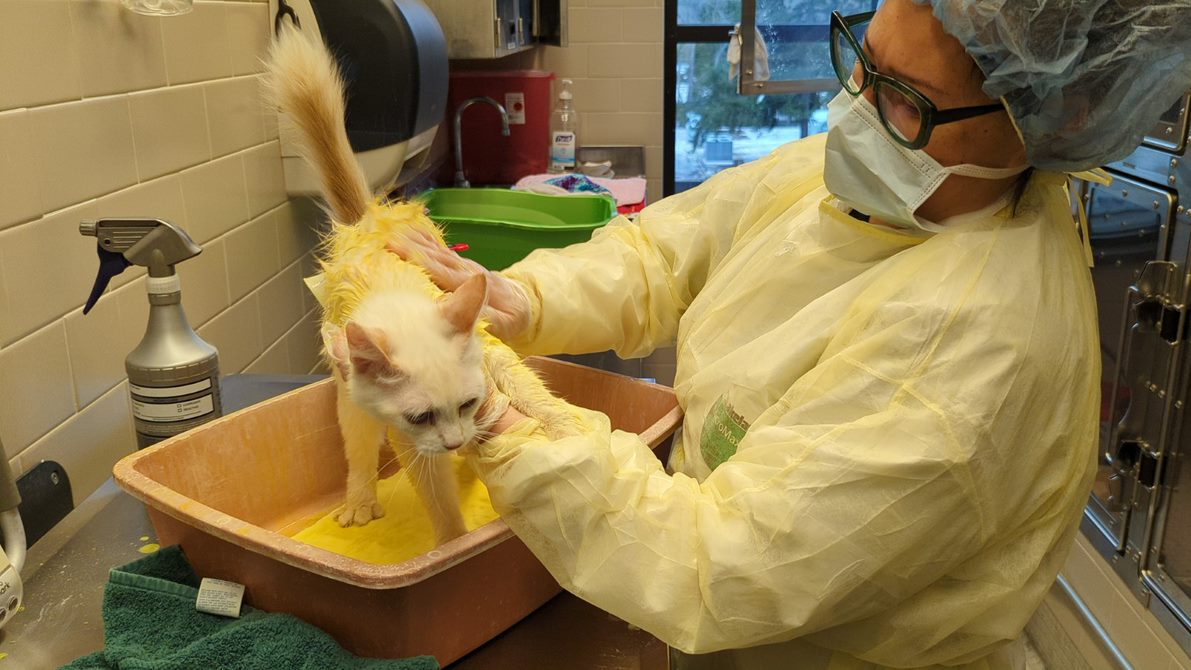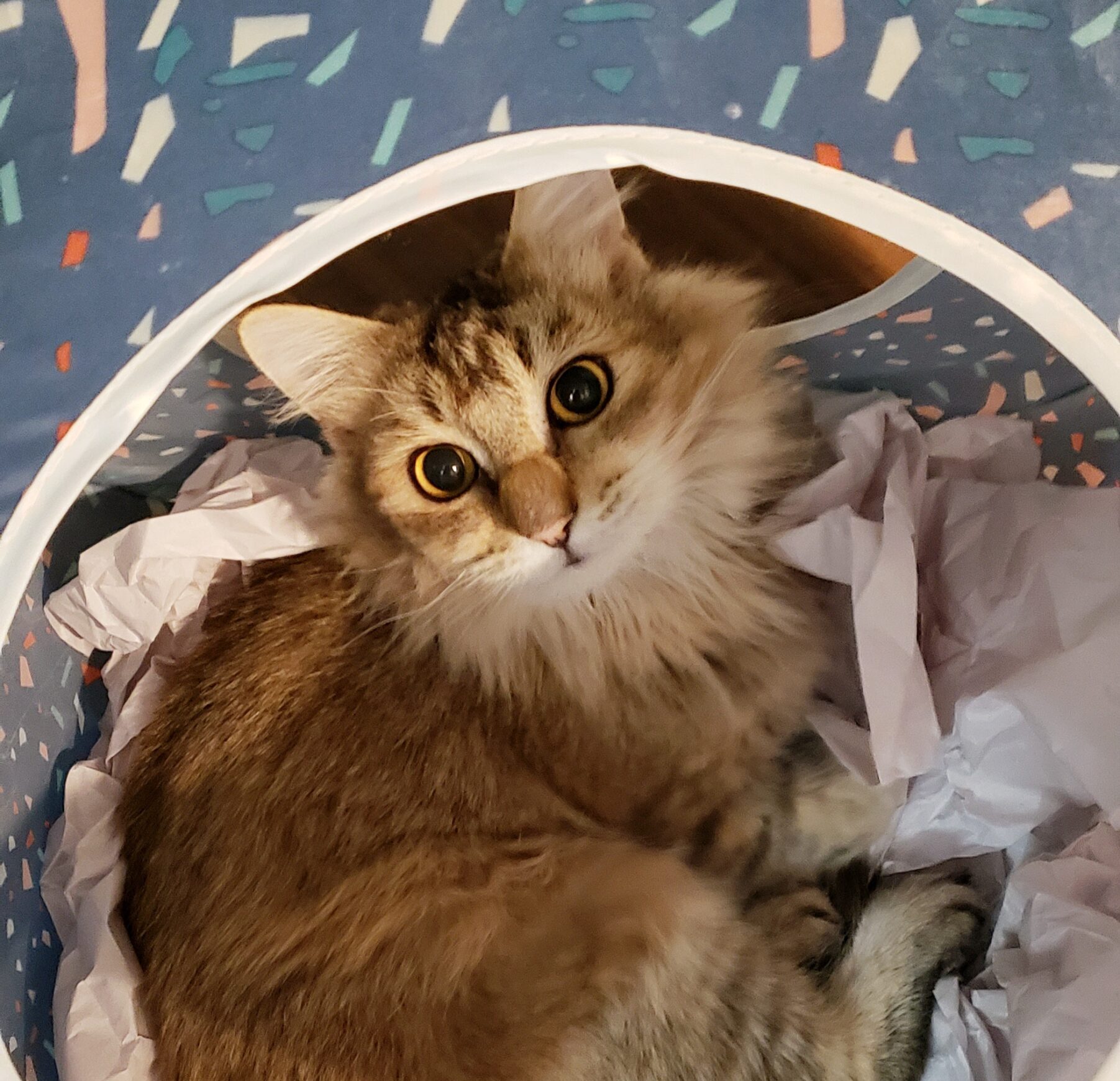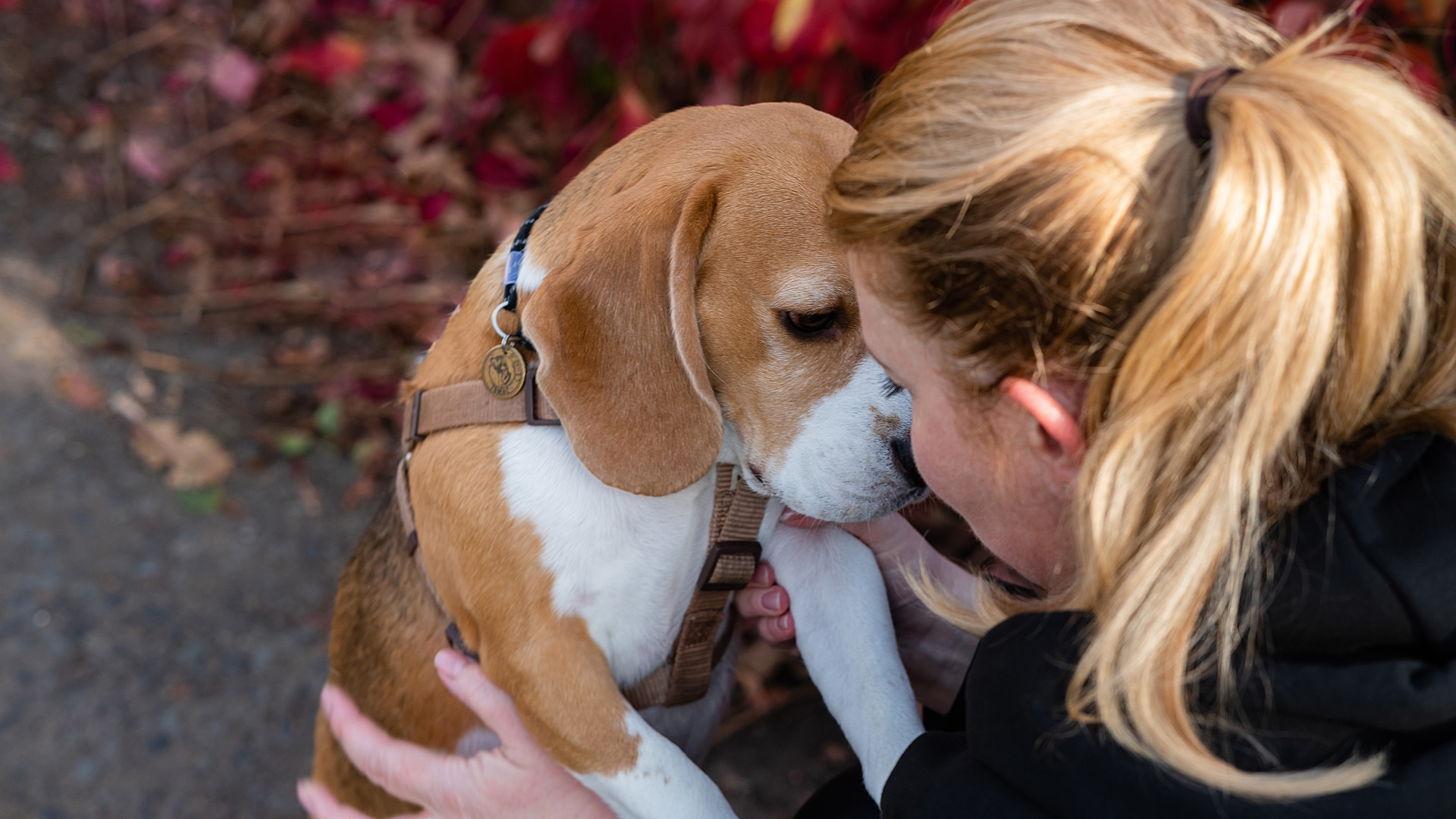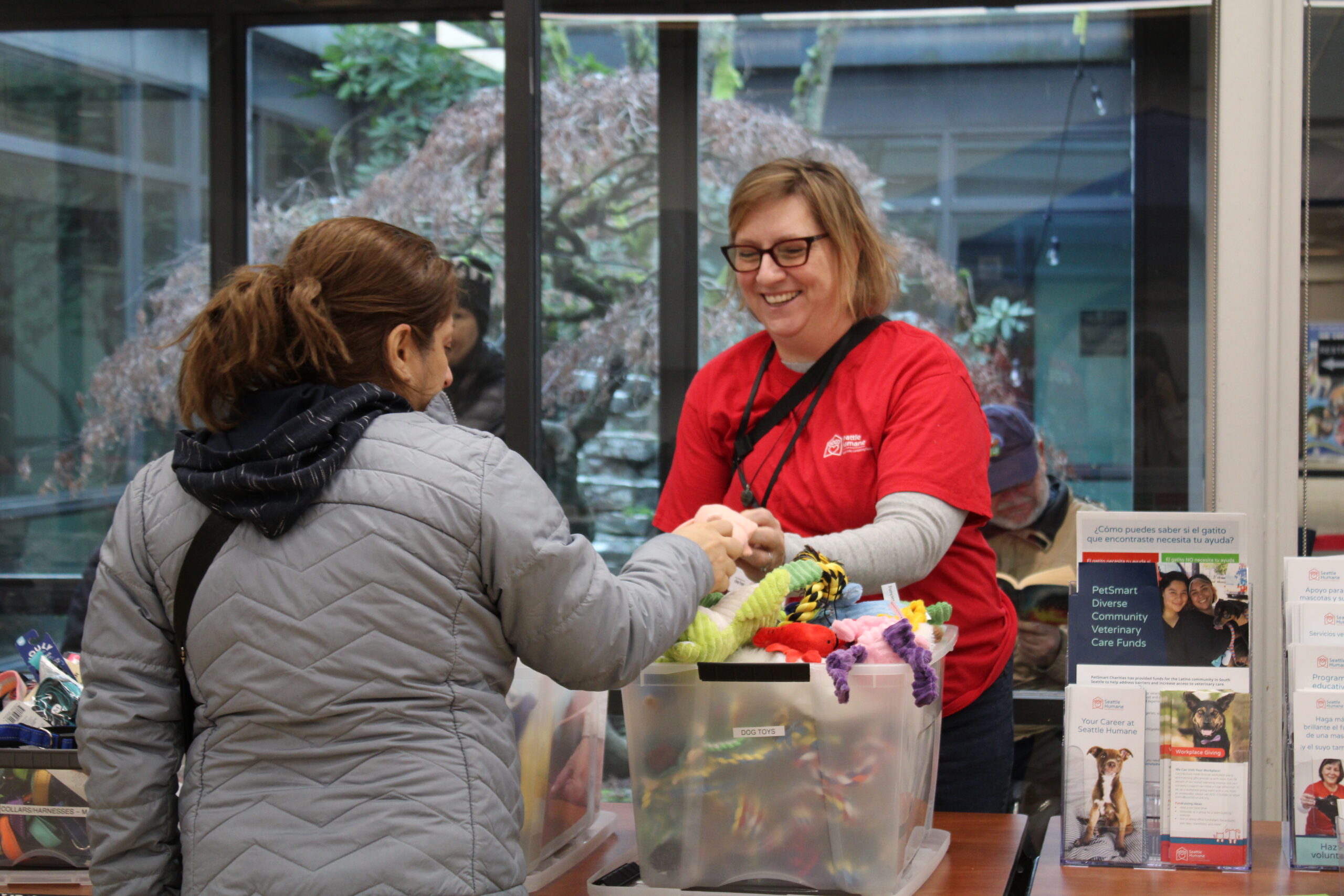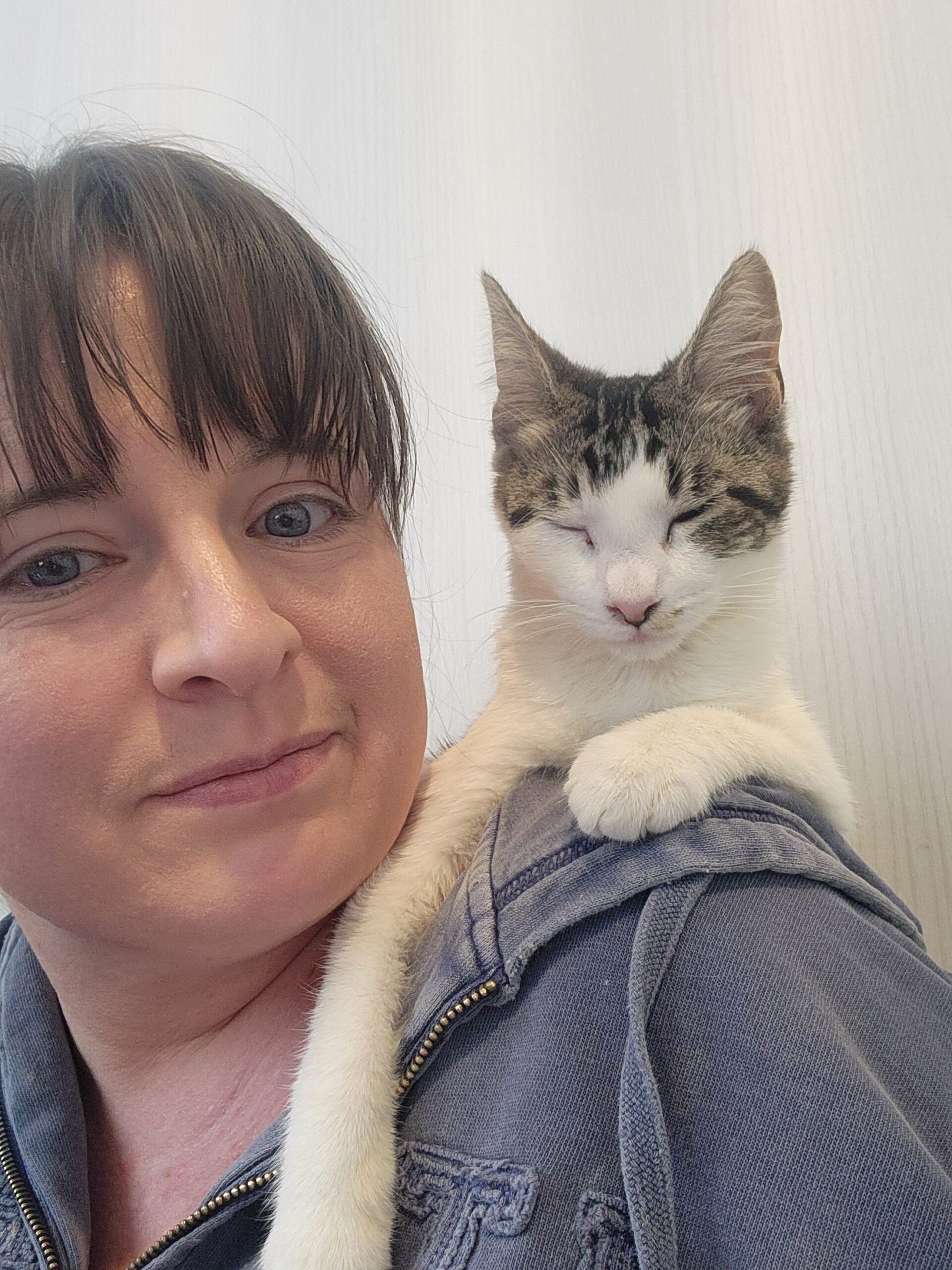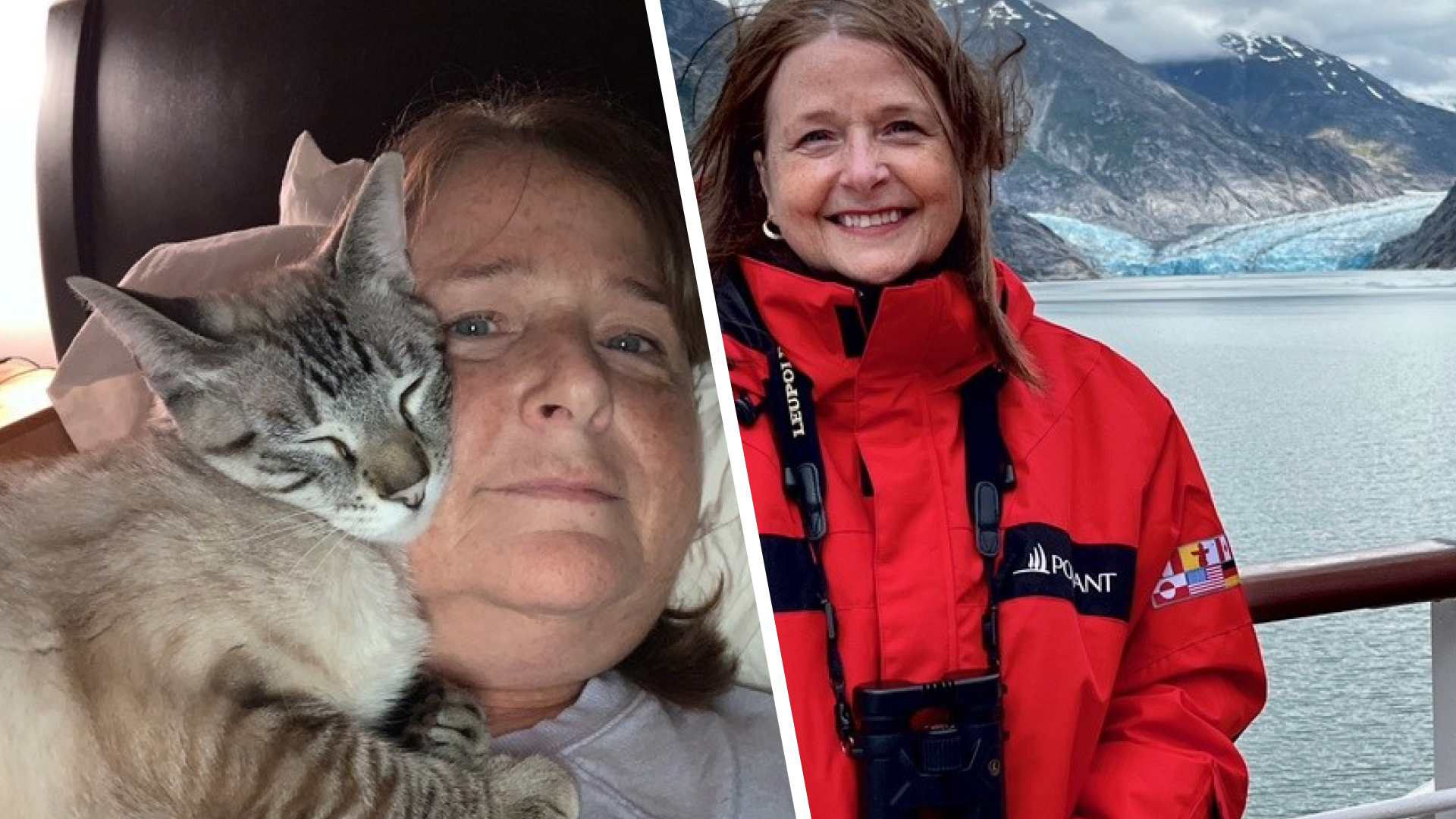For longtime foster parent Kelly Wittman, the ‘E’ kittens she took in last year – Ellen, Elias, Emelia, Esther and Ethell – seemed like your typical litter. The identical gray-and-white tabbies were a little thin, but still energetic and playful.
“They were super social kittens, one of the most affectionate groups we’ve ever had. Everything seemed normal, they just had trouble gaining weight. I was syringe feeding and monitoring as closely as I could,” says Wittman.
Unfortunately, tests later confirmed the kittens had panleukopenia, a highly contagious viral disease that can be deadly if not treated immediately. “The decision was made they should come back to the shelter. I was sad and worried but I knew they were in the best possible hands,” says Wittman.
For these tiniest and most vulnerable pets in our care, those expert hands can be found in Seattle Humane’s Isolation Ward (known as ISO), a series of rooms in the heart of the shelter dedicated to caring for pets with infectious diseases like parvovirus and panleukopenia.
“Puppies with parvo and kittens with panleuk are definitely some of the sickest pets we see at Seattle Humane,” says Chief of Veterinary Medicine Dr. Jessica Reed. “Puppies and kittens are most susceptible to these viral diseases because they have underdeveloped immune systems due to their young age, and they’re not yet fully vaccinated.”
These sickest pets often need intensive hospitalization for days to weeks to support them through their illness, including intravenous fluids, antibiotics, anti-nausea medications and nutritional support.
Sadly, kittens and puppies in some other shelters are not so fortunate. The intense amount of treatment needed, coupled with fears it could spread and erupt into a full-blown outbreak, result in many of them being euthanized.
Staff and volunteers working in ISO are covered head to toe in protective gowns, gloves and masks that have to be removed and replaced after every animal they touch. Strict PPE protocol is especially critical for animals with ringworm, a common skin fungus that can spread to people as well as other animals. While not life-threatening, ringworm can take months to clear and requires twice-weekly lime sulfur dips and oral medications. Shelters unable to take on this type of long-term care often elect to euthanize these infected pets as well.
It’s the memory of the ISO Ward in Seattle Humane’s old Bellevue shelter — a converted closet with just six cubbies — that drives Lifesaver Program Supervisor Sarah Davidson to help as many smaller shelters and rescues as she can.
“We get asked frequently during kitten season to take in panleuk and ringworm kittens because some shelters don’t have a way to properly isolate them or have run out of ISO space, forcing them to euthanize. If we have capacity, we’ll take them,” says Davidson.
As for the ‘E’ kittens? After a week in ISO, all five returned to foster mom Wittman. Fully recovered and healthy, they found loving homes a few weeks later.
Read our July 2022 Newsletter to see two of the ‘E’ kittens and other pets we were able to save thanks to your support!
